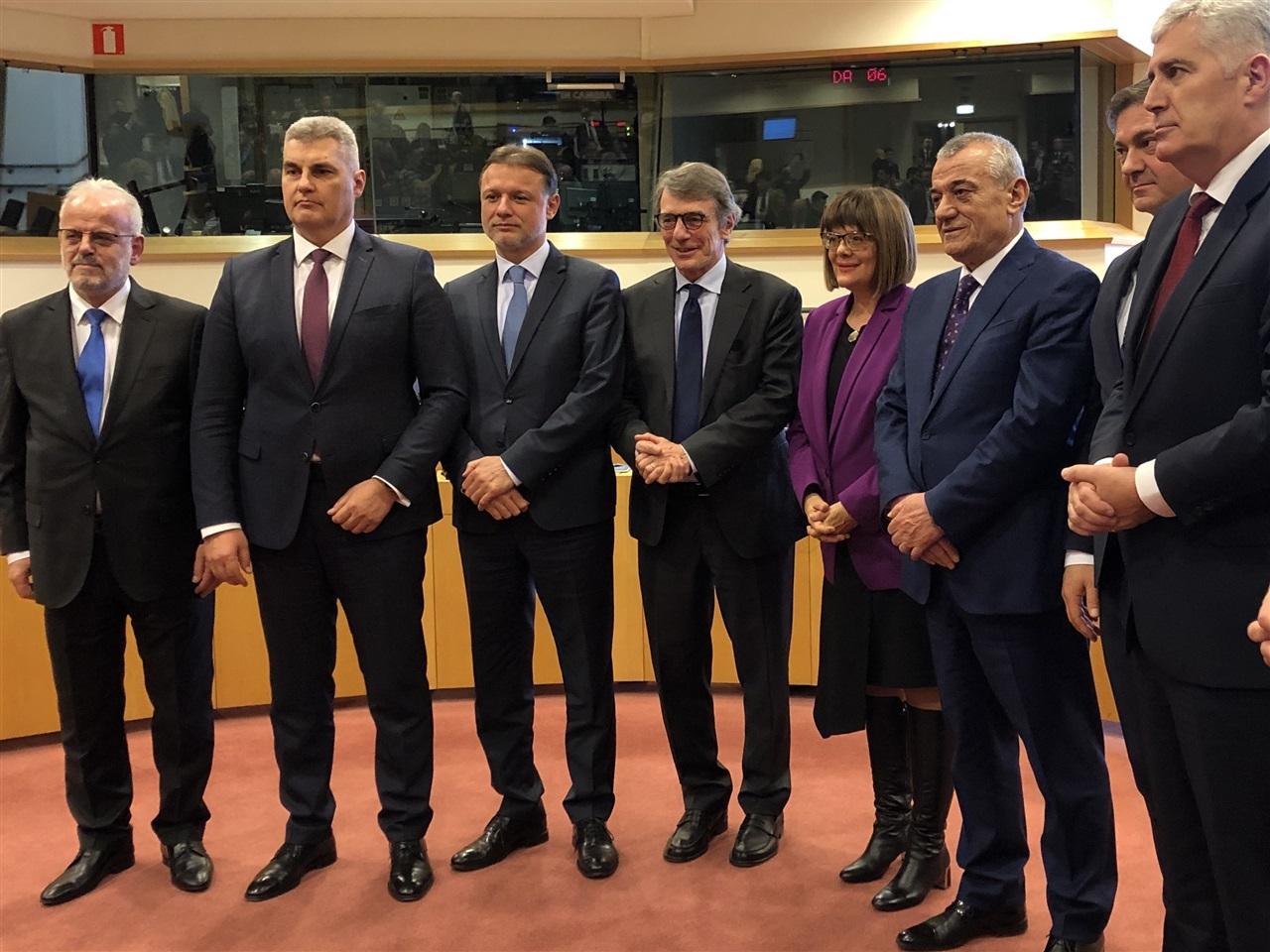
Zagreb - It is in Croatia's interest that countries in its southeast neighbourhood have a clear prospect of joining the EU, primarily because of security reasons, Croatian Parliament Speaker Gordan Jandroković said in Brussels on Tuesday.
As the parliament speaker of the country currently chairing the EU, Jadroković participated in a meeting of the parliamentary speakers of six Western Balkan countries, organised by European Parliament President David Sassoli.
Jandroković said the meeting was held to show that Southeast Europe is very important for the EU in terms of policies, economy but primarily security.
As a neighbouring country, Croatia is very much interested in the EU membership prospects of those countries, Jandroković said after the meeting.
Croatia will strongly contribute to those prospects and the aspirants must accept EU values, ensure the rule of law and human and minority rights protection and solve outstanding bilateral issues, he added.
He said that the EU-Western Balkans summit to be held in Zagreb in May should send a clear message that "it pays to implement reforms because that is important for their security, stability and their citizens' living standards, and for us as a neighbouring country, that is very important for security reasons."
Participants in the meeting adopted a joint declaration calling on the European Council to continue supporting the EU membership prospects of the Western Balkans based on the fulfillment of accession criteria and send an unequivocal and positive political message on the launching of accession talks and granting of candidate status.
North Macedonia and Albania are waiting for the launching of accession talks while Bosnia and Herzegovina is waiting for candidate status. Kosovo has signed a Stabilisation and Association Agreement but it still has not submitted a membership application.
The joint declaration also reads that the Western Balkan leaders commit themselves to leading their parliaments on the path of integration and helping create new political momentum in the enlargement process.
Sassoli said that enlargement to Southeast European countries would benefit both those countries and the EU and that it would help in the process of reconciliation in that region.
We should urgently give new momentum to the enlargement process by delivering concrete results. The Zagreb summit is expected to have a crucial role in that regard, Sassoli said.
The president of the House of Peoples of Bosnia and Herzegovina's Parliamentary Assembly, Dragan Čović, said that over the past two years his country had been preoccupied more with itself than with European integration.
"Now that the state-level government has been formed, amendments to the election legislation should be adopted for the city of Mostar, the House of Peoples and the Presidency of Bosnia and Herzegovina to ensure legitimate representation of the constituent ethnic groups. If that is done in the first three months of this year, and the sentiment seems to be favourable, we could have a real reform agenda," Čovicćsaid.
The presidents of the six Western Balkan countries' parliaments will also meet with the working group for the Western Balkans of the European Parliament's Foreign Affairs Committee, which is led by Croatian MEP Tonino Picula.
The EU remains open to those wishing to join it and to do so, they must meet the set criteria, Picula said, adding that he did not believe that the EU should be reformed before the next enlargement round and that he was confident the two processes could be conducted simultaneously.